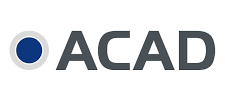The Real Deal About Accreditations: The Price Tag You Didn't Know About
Accreditations cannot be relied upon as a measure of credibility or competence

Introduction to accreditations
Accreditations play a pivotal role in establishing credibility and trust in various industries. They serve as a seal of approval, assuring consumers and clients that a particular organisation or individual meets certain standards of quality and professionalism.
However, what many people are unaware of is the hidden price tag that comes with these accreditations. In this article, we will delve into the lesser-known aspects of accreditations, shedding light on the true cost and questioning the credibility of accrediting bodies.
Assessing the credibility of accrediting bodies
When it comes to accreditations, the credibility of the accrediting body is of utmost importance. It is essential to thoroughly evaluate the reputation and track record of the accrediting body before placing blind trust in their accreditation. Unfortunately, many accrediting bodies fall short in terms of true independence, consistency and transparency.
Superficial application reviews
One of the main issues with accreditations is that applications are often reviewed on a superficial level. The accrediting bodies may not delve deep into the practices and processes of the organisation seeking accreditation.
This superficial review can lead to a false sense of credibility, as the accrediting body may not have a comprehensive understanding of the operations and standards of the organisation.
The Need for Proper and In-depth Fact Checking During the Review Process.
To ensure the integrity of accreditations, it is crucial for accrediting bodies to conduct proper and in-depth fact-checking during the review process. This includes examining company structures beyond the organisational chart, company documents, conducting random employee interviews, and even on-site visits if necessary. Without thorough fact-checking, accreditations may not truly reflect the quality and professionalism of the organisation.
Lack of true independence in accreditations
True independence is often not achieved in the accreditation process. Some accrediting bodies have ties to industry organisations or have vested interests that can compromise their objectivity. This lack of independence raises questions about the credibility and impartiality of the accreditation process.
Accrediting Bodies with the Monopoly over certain industries
In certain industries, there are accrediting bodies that hold a monopoly over the accreditation process. This monopoly gives them significant control and influence, which can be detrimental to fair competition and the establishment of diverse standards. It is important to question the motives behind such monopolies and ensure that they do not hinder innovation and growth within the industry.
Hidden conflicts of interest within accrediting bodies
Conflicts of interest can still be hidden from accrediting bodies, even with their best intentions. It is crucial for accrediting bodies to implement robust conflict of interest policies and procedures to avoid any biases or compromised assessments. Transparency and a robust process are key in ensuring that conflicts of interest are identified and therefore do not undermine the credibility of accreditations.
The importance of transparency in accreditations
Transparency is paramount in the accreditation process. Accrediting bodies should openly share information about their assessment criteria, review processes, and any potential conflicts of interest. This transparency allows organisations and individuals seeking accreditation to make informed decisions and ensures that accreditations hold true value and credibility.
Accreditations as a box-ticking exercise
Accreditations can sometimes become a mere box-ticking exercise, with organisations seeking accreditation merely to fulfil a requirement rather than genuinely striving for excellence. This approach undermines the true purpose of accreditations and dilutes their significance. It is important for organisations to embrace the spirit of continuous improvement and view accreditations as a means to enhance their operations, rather than simply a box to be ticked.
The true cost of accreditations
While accreditations may seem like a worthy investment, the true cost goes beyond the monetary expenses. Organisations often dedicate significant time and resources to prepare for and maintain accreditations. This can divert focus and energy away from other critical aspects of the business. Additionally, the pressure to conform to accreditation standards may stifle innovation and creativity, limiting the organisation's ability to adapt and grow.
Alternative ways to establish credibility.
Questioning the credibility of accrediting bodies should not discourage organisations from seeking validation and establishing credibility. There are alternative ways to achieve this without solely relying on accreditations. Building a strong reputation through consistent delivery of high-quality products or services, obtaining testimonials from satisfied clients, and participating in industry associations can all contribute to establishing credibility without the constraints and potential pitfalls of accreditations.
Why Accreditations Can't be Relied on
Accreditations, although valuable to a certain extent, cannot be solely relied upon as a measure of credibility. They represent only a snapshot in time and may not reflect the normal working practices of an organisation, with paperwork and records being doctored and application submissions often being rushed through at the last minute. It is essential for consumers and clients to dig deeper and carry out their own due diligence when evaluating the suitability and trustworthiness of an organisation.
Accreditations: A snapshot in time and may not reflect normal working practices.
Accreditations provide a momentary assessment of an organisation's practices and standards. They do not guarantee consistent adherence to those standards over time. It is important to recognise that organisations can change, and their commitment to quality may fluctuate. Therefore, relying solely on accreditations may lead to misplaced trust, disappointment and even breaches of regulations on site.
The importance of carrying out your own due diligence
To truly understand the credibility of an organisation, it is crucial to carry out your own due diligence. This involves researching their reputation, reading reviews, and seeking testimonials from previous clients or customers. By taking an active role in evaluating organisations, you can make informed decisions and minimise the risks associated with blindly relying on accreditations.
Conclusion: Understanding the true price tag of accreditations
Accreditations may come with a price tag, both in terms of financial investment and hidden costs. It is essential to question the credibility of accrediting bodies and recognise the limitations of accreditations. While they can provide a certain level of assurance, they should not be the sole basis for establishing trust and credibility. By conducting thorough due diligence and exploring alternative ways to validate an organisation's quality and professionalism, we can make informed decisions and ensure that the price we pay for accreditations is truly worth it.
As consumers and clients, let's not solely rely on accreditations but take an active role in evaluating the credibility of organisations. By conducting our own due diligence and exploring alternative ways to establish trust, we can make informed decisions and contribute to a more transparent and reliable business landscape.









